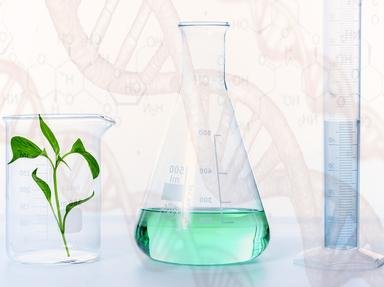Quiz Answer Key and Fun Facts
1. Ions that have a positive charge are called what?
2. Which of the following people won the Nobel Prize in Chemistry?
3. In which year did Mendeleev publish his version of the periodic table?
4. Which of these formulas can produce zinc chloride?
5. How many elements did Aristotle think there were?
6. Which form of matter has the lowest amount of energy?
7. Which of these does NOT contain hydrogen?
8. Which of these is NOT an alkaline earth metal?
9. What is the third most abundant element in the universe?
10. What is the chemical formula for table salt?
Source: Author
happy1234512
This quiz was reviewed by FunTrivia editor
rossian before going online.
Any errors found in FunTrivia content are routinely corrected through our feedback system.

